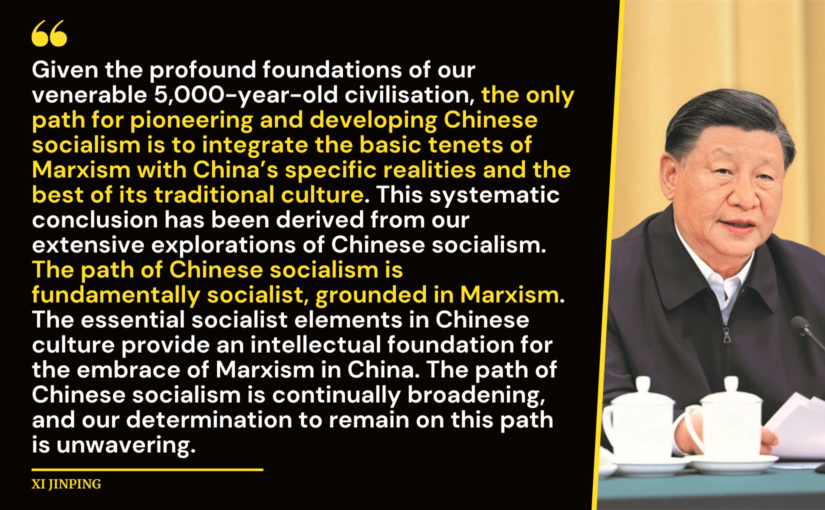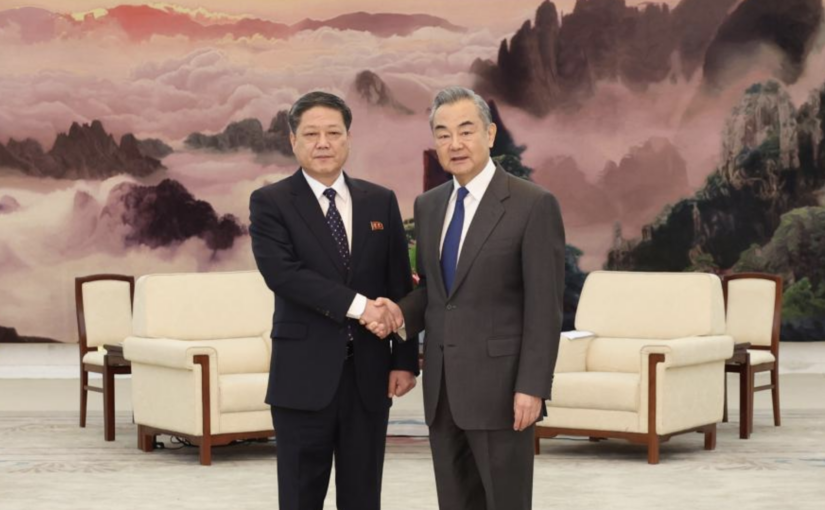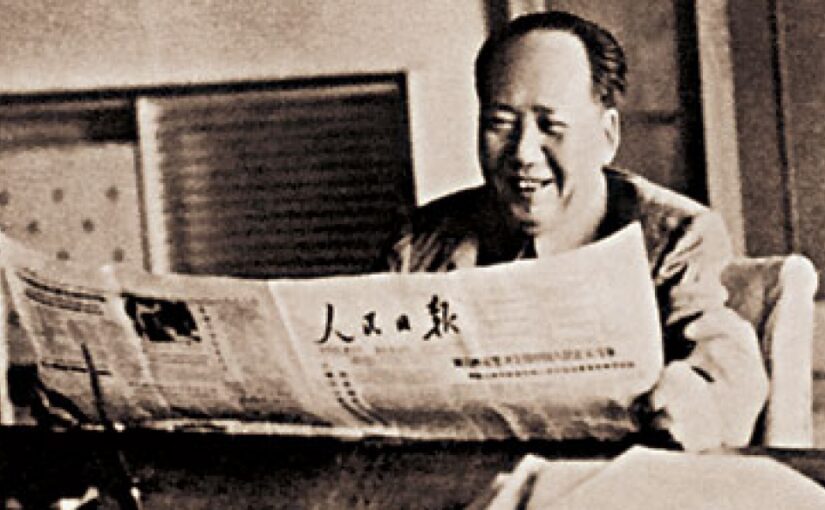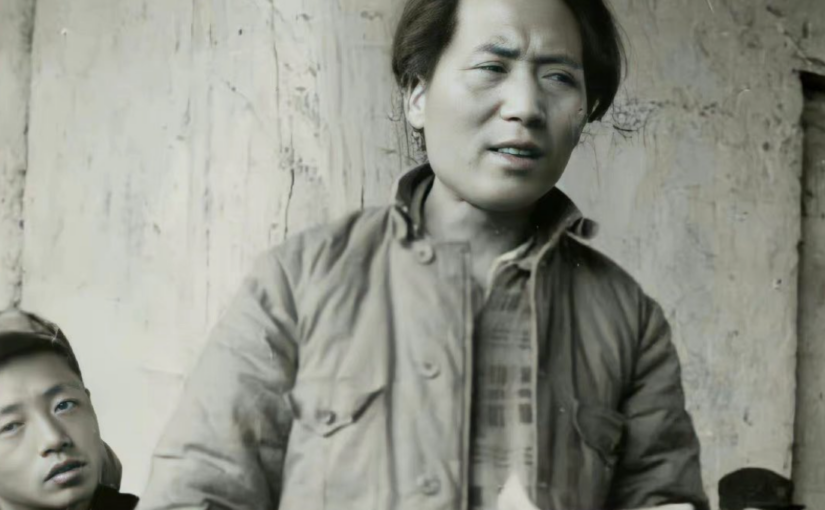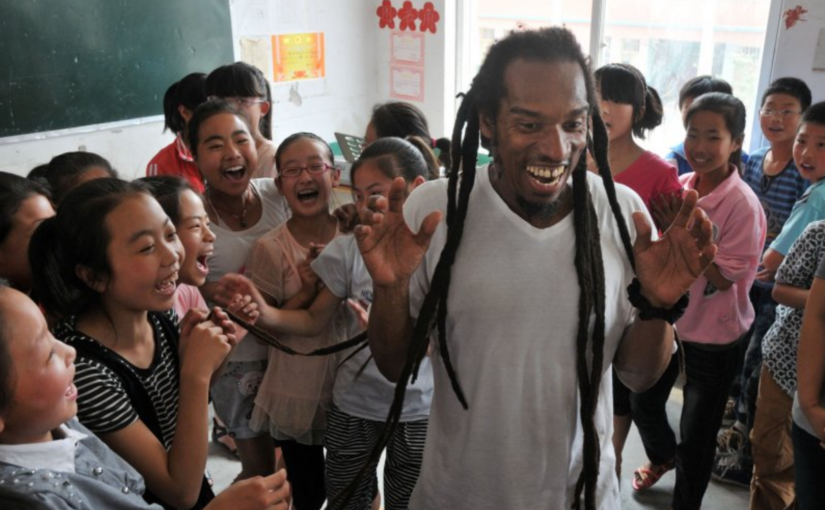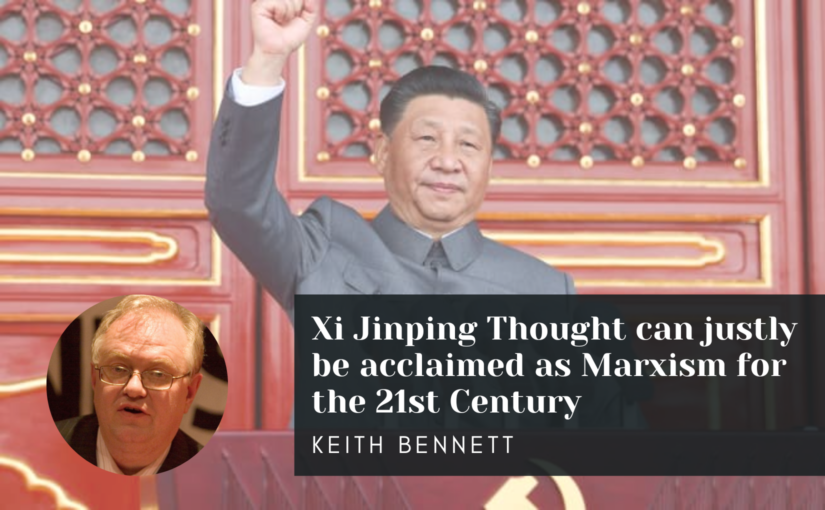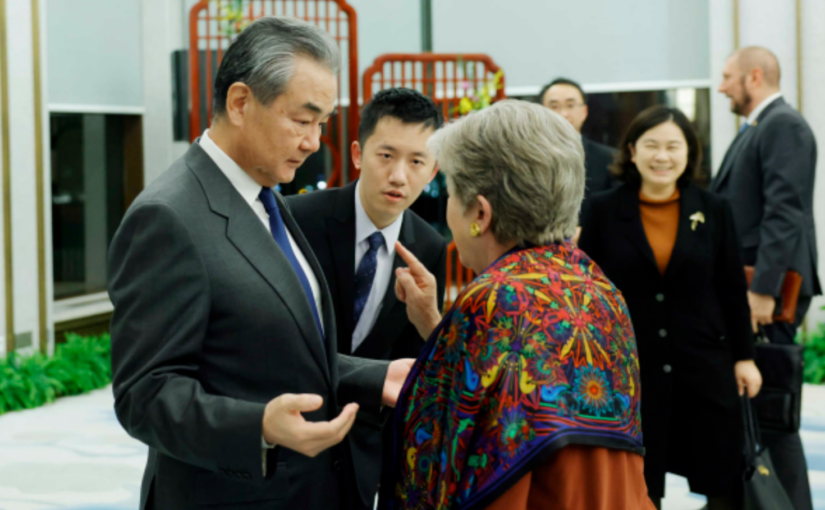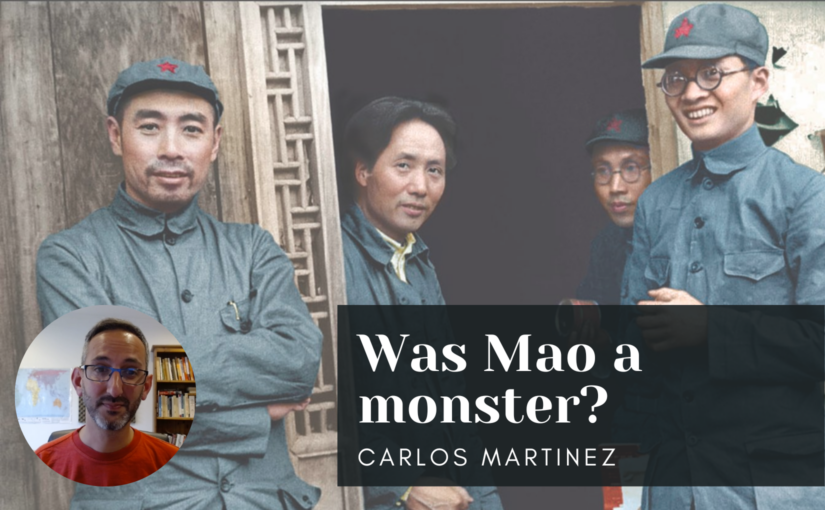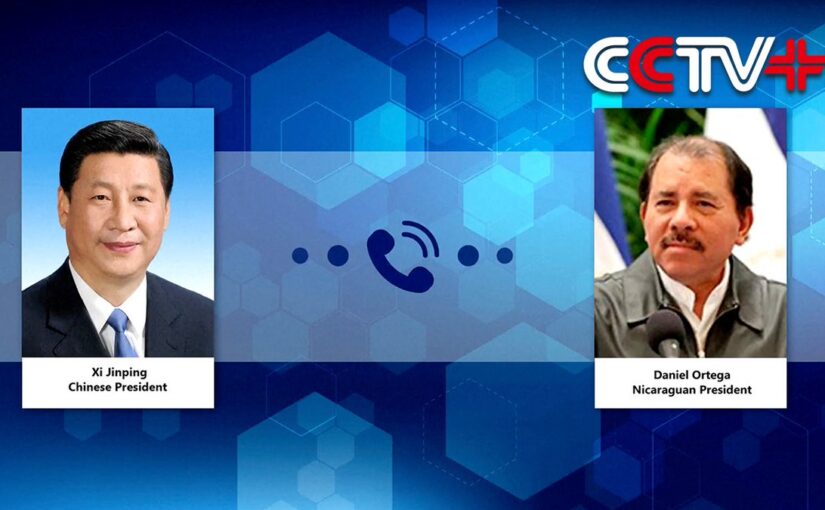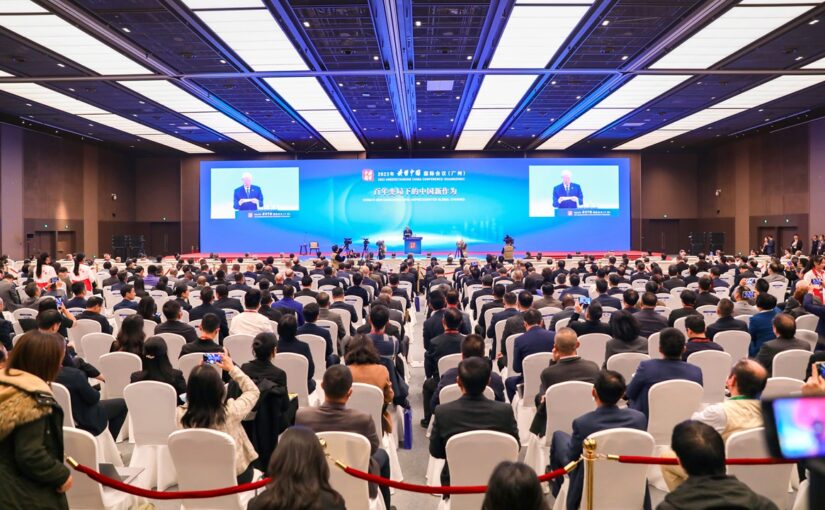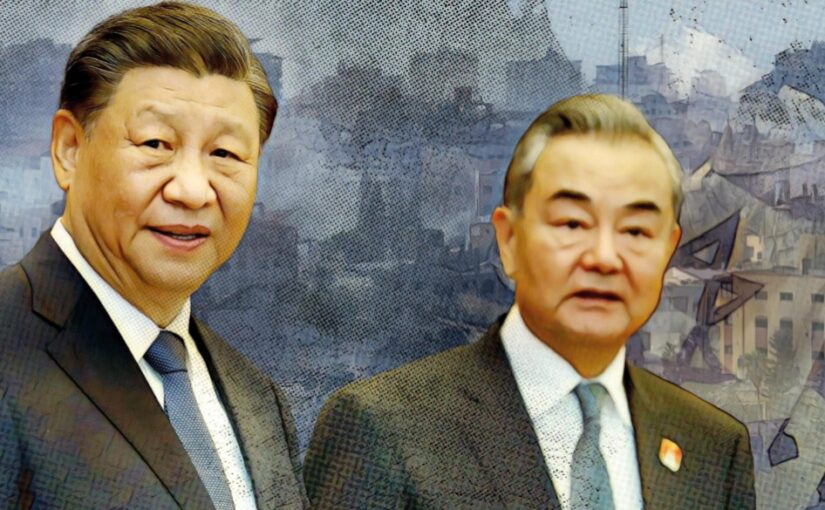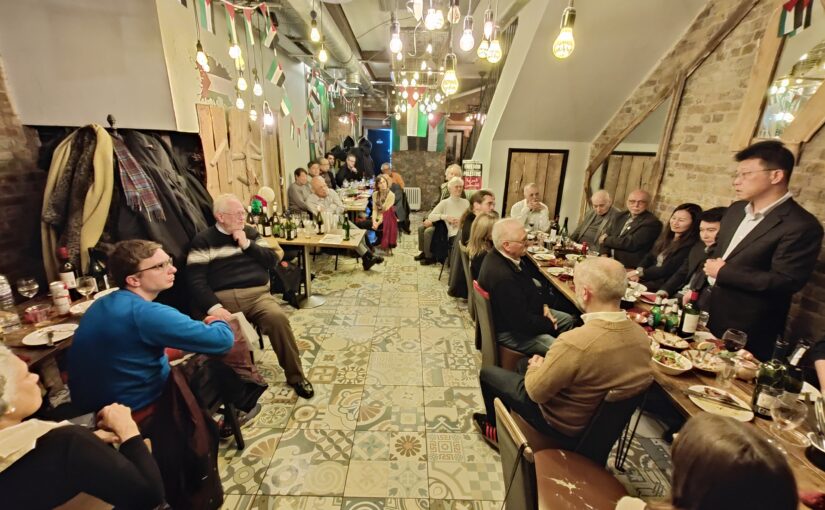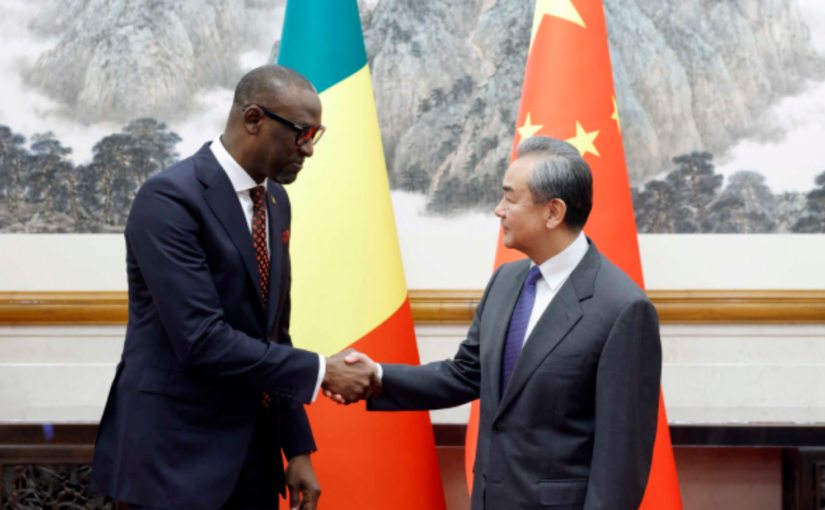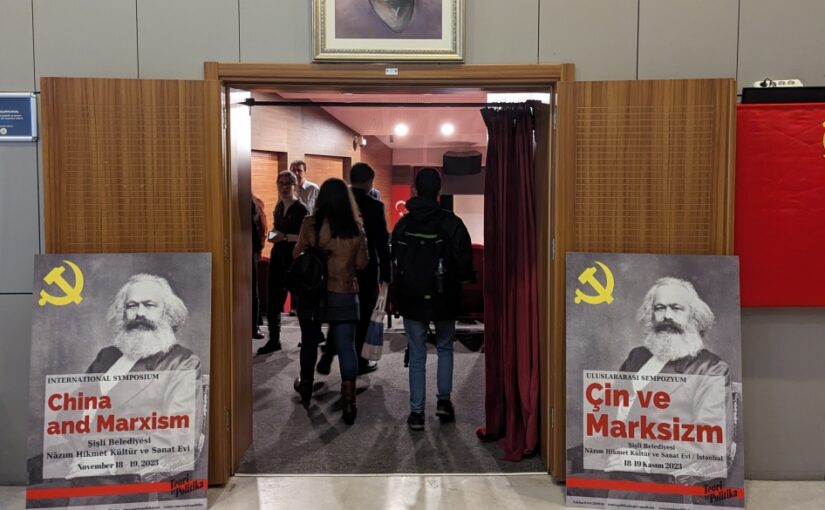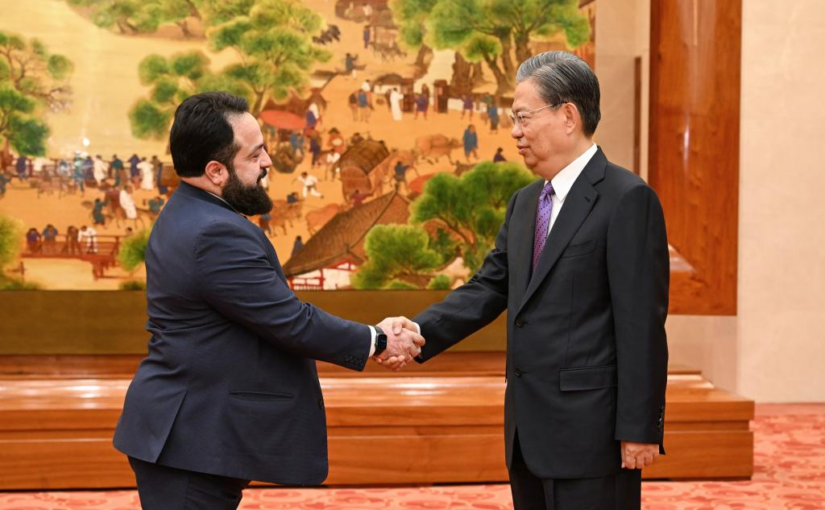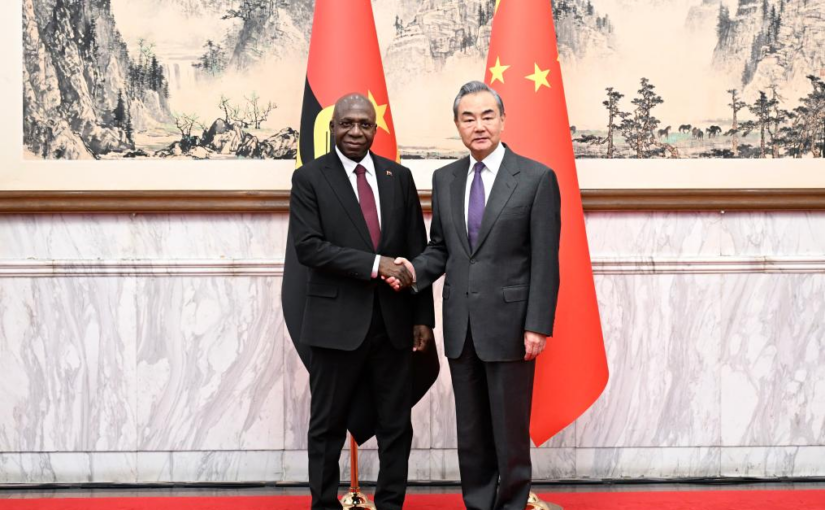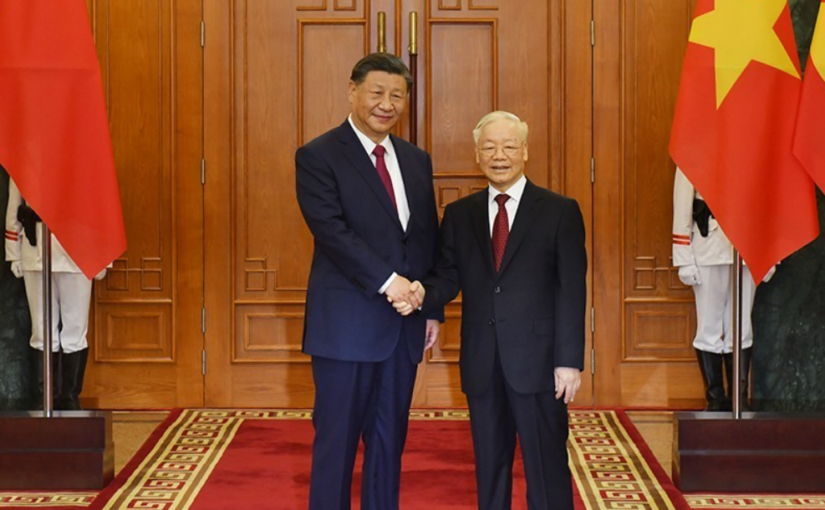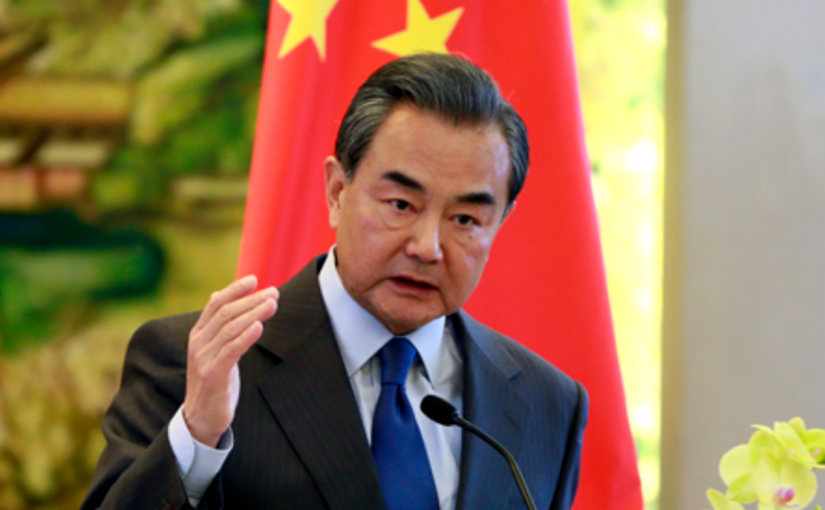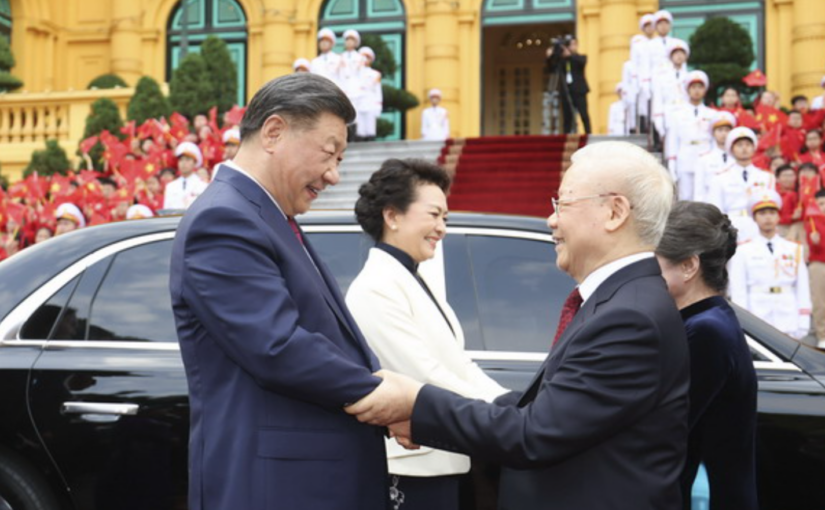Chinese leader Xi Jinping’s December 12-13 state visit to Vietnam was characterised by exceptional warmth, not only on the bilateral level but also, and perhaps most significantly, from the standpoint of two socialist countries jointly taking responsibility for the destiny and progress of socialism in the world.
Meeting the General Secretary of the Communist Party of Vietnam (CPV) Central Committee Nguyen Phu Trong, shortly after his arrival in Hanoi, Xi and his host announced a new characterisation of the relationship between their two parties and two countries, as working together for a China-Vietnam community with a shared future that carries strategic significance, on the basis of deepening the comprehensive strategic cooperative partnership, which the two countries unveiled fifteen years previously.
General Secretary and President Xi Jinping expressed his pleasure in coming to Vietnam as previously agreed, accomplishing three mutual visits with General Secretary Nguyen Phu Trong. He expressed the genuine happiness of China as a comrade and brother for the development achievements of Vietnam over the past nearly four decades of Doi Moi (reform), especially since the 13th CPV National Congress. Xi Jinping expressed China’s firm support for Vietnam in continuing advancing its socialist cause and the firm belief that under the strong leadership of the CPV Central Committee with General Secretary Nguyen Phu Trong at the helm, the CPV and the Vietnamese government will surely accomplish all the tasks put forward at the 13th CPV National Congress, and lay a solid foundation for realising the goals and targets set for the centenaries of the CPV and the Socialist Republic of Vietnam.
Xi Jinping further underlined that China and Vietnam have supported each other in their struggle for national independence and liberation, and learned from each other’s causes of reform and opening up and Doi Moi. The characterisation “camaraderie plus brotherhood” well captures the profound friendship between the two countries. China all along views its relations with Vietnam from a strategic height and long-term perspective. Changes of the world, of our times and of historical significance are unfolding like never before. The CPC and CPV are the two largest governing communist parties in the world. Both uphold and develop Marxism, both are committed to the path of socialism, and both are leading their countries in socialist development. It is therefore all the more important that the two parties grasp the special strategic significance of China-Vietnam relations and solidly advance the building of a China-Vietnam community with a shared future from the height of building the strengths of socialism in the world and ensuring the sound and sustained development of their respective socialist causes. China and Vietnam will achieve more progress in their socialist causes, and make new contributions to stability, development and prosperity of the region and the entire world.
It is important, Xi continued, to keep to the right political direction. The two sides should follow the high-level strategic guidance, enhance exchanges and mutual learning on party and national governance experience, and work together to deepen the understanding of the laws of governance by communist parties, socialist development and the development of human society. The two sides should give each other firm support on issues concerning respective core interests and major concerns and jointly safeguard international fairness and justice.
Both sides should give top priority to protecting national political security, keep to socialism without any deviation, so as to ensure that the red flag will not be changed, and forestall, diffuse and contain various political security risks with all-out efforts.
Modernisation of the over 1.4 billion Chinese people is a huge opportunity for the world. China would like to share opportunities and pursue common development with comrades in Vietnam. It is important to strengthen the popular and mass foundation for bilateral relations. China-Vietnam cooperation needs to be more weighted toward agriculture, education, medical care and other livelihood areas. The two sides should step up cooperation on youth, tourism and at subnational levels and forge closer bonds between young people.
General Secretary Nguyen Phu Trong noted that under the strong leadership of General Secretary Xi Jinping and the guidance of Xi Jinping Thought on Socialism with Chinese Characteristics for the New Era, China has made achievements on all fronts and steadily increased its international standing and influence. Vietnam is genuinely delighted for brotherly China. Vietnam firmly believes that under the leadership of the CPC Central Committee with Comrade Xi Jinping at its core, China will undoubtedly realise all the objectives outlined at the 20th CPC National Congress as scheduled, and make new and important contributions to human progress.
General Secretary Nguyen Phu Trong continued to say that Xi Jinping is a beloved leader of the Chinese people, a prominent leader in the world, and a respected and revered comrade and friend of the Vietnamese people. He added that both the invitation extended to him for a visit to China immediately after the 20th CPC National Congress and this third visit as previously agreed speak volumes about the special friendship of Xi Jinping for Vietnam and the high-level nature of Vietnam-China relations. Vietnam and China have a profound friendship featuring camaraderie plus brotherhood. Not long ago, he had visited the Friendship Pass at the Vietnam-China border and planted a “friendship tree” there to demonstrate the special brotherhood and send a positive signal of the special friendship between Vietnam and China.
Maritime differences, the Vietnamese leader noted, are only part of the overall relationship between Vietnam and China. It is believed that the two sides will properly handle them in the spirit of mutual trust and mutual respect.
Following the talks, the two General Secretaries jointly witnessed the documents signed on bilateral cooperation in 30 plus areas, including Belt and Road cooperation, quarantine and inspection, development cooperation, digital economy, green development, transportation, subnational cooperation, defence, law enforcement and security cooperation, and maritime cooperation.
The next day, President Xi continued his talks with other Vietnamese leaders.
Meeting with President Vo Van Thuong, Xi said that yesterday he and General Secretary Trong had jointly announced the building of a China-Viet Nam community with a shared future that carries strategic significance, raising the relations between the two parties and two countries up to a new stage. The Chinese and Vietnamese people have fought side by side in their struggles for national independence and liberation and supported each other in the cause of socialist revolution and construction. Such a commitment to each other through thick and thin has forged a friendship featuring “camaraderie plus brotherhood.” To build a China-Vietnam community with a shared future that carries strategic significance is to renew the shared will of the older generation of leaders of the two parties and countries, to pay tribute to the heroic past, and to carry forward the revolutionary friendship between the two countries. It is also a major historic decision made by the leadership of the two parties and countries, bearing in mind the larger interests of the long-term development of China-Vietnam relations and the strategic overall picture of solidarity of socialist forces in the world. It meets the common needs of China and Vietnam to advance their respective modernisation and serves the common interests of the two peoples.
President Xi Jinping stressed that the two sides need to fully appreciate the historical imperative, strategic significance, immediate necessity, and international responsibilities of building a China-Vietnam community with a shared future.
He added that it is important to enhance solidarity and coordination to safeguard the China-Vietnam community with a shared future. China and Vietnam are both socialist countries under the leadership of a communist party. It is their shared responsibility and mission to safeguard the security of the political system and defend the cause of socialism. The two sides should strengthen solidarity, stay committed to openness and mutual benefits, jointly guard against external infiltration and sabotage attempts, and make due contributions to strengthening world socialist forces and promoting peace and progress of humanity.
President Vo Van Thuong said that the profound traditional friendship between Vietnam and China, forged by the older generation of the two sides, has stood the test of the evolving international dynamics and become a shared asset of the two peoples. Amid complex transformation of the international landscape, both Vietnam and China are at a critical development stage. It is therefore the shared aspiration of the Vietnamese and Chinese people to consolidate and strengthen the trust and cooperation between the two parties and two countries, and continuously advance the socialist cause of the two countries. Under the irreplaceable strategic guidance of General Secretary Nguyen Phu Trong and General Secretary Xi Jinping, the Vietnam-China relationship has never been so comprehensive, profound and friendly as it is today.
And in words that did not name any third country, but which were clearly directed at the attempts by the United States, in particular, to drive a wedge between China and Vietnam, for example during US President Biden’s recent visit, and the insinuations and rumours spread by the imperialist mass media in that regard, the Vietnamese President very pointedly noted:
“The Vietnamese side hopes that President Xi Jinping’s visit will send a clear message to the world once again, that developing relations with China has always been a top priority and strategic choice for the Vietnamese party and government. The Vietnam-China relationship is as solid as rock. No external force can sow discord, disrupt or undermine this bilateral relationship.”
He added that the Vietnamese side will earnestly implement the important consensus of the General Secretaries of the two parties, fully leverage the unique advantage of the two countries in sharing the same social system and similar ideals and philosophies, strengthen experience exchange in party and state governance, comprehensively advance practical cooperation in various fields including politics, economy, trade, people-to-people exchanges and security, uphold national political security, and facilitate industrialisation and modernisation.
Vietnam is committed to the one-China policy, and sincerely supports China’s reunification. The Vietnamese side stands ready to properly address maritime differences under the spirit of mutual respect and win-win cooperation, and push for steady progress of the Vietnam-China community with a shared future. The initiatives on global development, security and civilisation proposed by President Xi Jinping demonstrate the sense of responsibility of a major country and a major party, as well as China’s important role in leading international development and cooperation. Vietnam is ready to be actively involved, and will enhance international coordination with China to jointly make new contributions to world peace and stability and the progress and well-being of humanity.
Meeting Vietnamese Prime Minister Pham Minh Chinh, President Xi stressed the need for China and Vietnam to work in solidarity in their socialist cause. The two sides may increase exchanges on ideological work and party theories and share experience on party and state governance. It is also important that the two sides increase people-to-people exchanges and cooperation to deepen the friendship between the two peoples and prepare the younger generation for the task of taking over the baton of China-Vietnam friendship at an early date. While the remarkable achievements in China’s reform and opening up and in Viet Nam’s Doi Moi are the result of hard work by the two countries, they are also attributable to a peaceful and stable world in general and an open and inclusive Asia-Pacific in particular. The two sides must guard against and oppose any attempt to destabilise the Asia-Pacific, and at the same time strengthen coordination and collaboration on international affairs and jointly safeguard a sound external environment.
For his part, Prime Minister Pham Minh Chinh said that Vietnam and China are two countries cherishing the same ideals and pursuing similar paths. All of President Xi’s visits to Vietnam and his important remarks have strengthened Vietnam’s recognition theoretically and emotionally, and deepened the friendship and mutual trust and enhanced the amity and affinity between the two countries. The further strengthening of Vietnam’s relations with China is the top priority and a strategic choice of the party and government of Vietnam. It is also the strong desire of the Vietnamese people. Noting that the bilateral relationship has stood the test of time and history, Prime Minister Pham Minh Chinh expressed his conviction that the relationship will not be affected by any external force trying to sow discord or cause disruption and that the building of a Vietnam-China community with a shared future will benefit the two peoples and contribute to peace, stability and prosperity in the region.
In his meeting with the Chairman of the National Assembly of Vietnam Vuong Dinh Hue, President Xi Jinping noted that China and Vietnam share the same political system, similar aspirations and philosophies and an intertwined future. Relations with each other hold a special place in their respective party-to-party and state-to-state relations. Over the past 73 years since the establishment of diplomatic relations, the traditional friendship between China and Vietnam has been further enriched through mutual support and assistance in the struggle for national independence and liberation, and further deepened as the two sides move forward comprehensive strategic cooperation to advance the socialist causes. This year marks the 15th anniversary of the comprehensive strategic cooperative partnership. Yesterday, leaders of the two countries jointly announced the building of a China-Vietnam community with a shared future that carries strategic significance. This sends a positive message of solidarity, friendship and common development between China and Vietnam as two socialist countries.
Xi added that it is important to take stock of the fine traditions and good practices in bilateral relations, step up high-level strategic communication, share experience on the governance of parties and countries, explore ways to enrich the theories and practices of socialist development, uphold common strategic interests, and keep the bilateral relationship on the right track. It is also important, the Chinese leader stressed, to properly manage problems and differences. It is important to translate the understandings and desires of the leadership of the two parties and countries into concrete actions, advance cooperation while managing differences, and steadily take forward maritime cooperation, especially joint development.
Chairman Vuong Dinh Hue said that the agreements reached between General Secretaries Xi Jinping and Nguyen Phu Trong take forward the special friendship of camaraderie plus brotherhood forged by the older generation leaders, and will steer the relationship in the direction of steady development in the long run and toward a brighter future. The Vietnamese side identifies with the CPC on its governance philosophy, sincerely congratulates China on its remarkable achievements, and firmly believes that China will realise the goal of building a great modern socialist country in all respects as scheduled.
Xi Jinping also delivered an important speech at a meeting of young Chinese and Vietnamese people who have contributed to the friendship between the two peoples. He said that:
“Yesterday, General Secretary Nguyen Phu Trong and I jointly announced our decision to build a China-Vietnam community with a shared future that carries strategic significance, thus ushering in a new stage in the relations between our two parties and countries. This is a major strategic decision we have made to revitalise world socialism and ensure long-term stability and security of our two countries. It is rooted in our traditional friendship and represents the shared interests and aspirations of our two peoples.”
President Xi then outlined some key moments in the long history of mutual support and solidarity between the Chinese and Vietnamese revolutions:
“In the past, we stood by and reached out to each other as we pursued common goals together. In modern times, our two parties and peoples stayed true to our common ideals and supported each other in trying times as we fought for national independence and liberation. Chairman Ho Chi Minh was engaged in revolutionary activities in China for 12 years, during which he first established the Vietnamese Revolutionary Youth League in Guangzhou, and later founded the Communist Party of Vietnam in Hong Kong. For a long time, he also gave guidance to the Vietnamese revolution from Yunnan and Guangxi. Nong Qizhen, a villager in Guangxi’s Longzhou County, risked his life to protect Chairman Ho Chi Minh. It was in Guangxi where Chairman Ho Chi Minh wrote the resounding letter to all Vietnamese. He left Guangxi and returned to Vietnam in 1945, where he led the August Revolution to victory, and founded the Democratic Republic of Vietnam. In Vietnam’s War Against French Occupation and its War Against US Aggression to Save the Nation, more than 1,400 Chinese officers and men gave their lives, and they now rest in peace in Vietnam. More than 5,000 injured Vietnamese soldiers were treated in Nanxishan Hospital in Guilin, Guangxi, and over 10,000 Vietnamese students received education in Yucai School there. Vietnam also actively supported the Chinese Revolution. General Nguyen Son, who participated in the Guangzhou Uprising of 1927 and later joined the Long March of the Chinese Red Army, is well-known in China as a general of both countries. Today, when we read the famous poetic line by Chairman Ho Chi Minh that ‘So profound is the friendship between Vietnam and China, because we are both comrades and brothers’, the memory of those fiery and exciting years of our two peoples is kept alive.”
And he continued: “Today, we remain firmly committed to our shared aspiration forged in the early days and are pursuing win-win cooperation. Since we established the comprehensive strategic cooperative partnership 15 years ago, we the Communist Party of China and the Communist Party of Vietnam have pursued people-centred mutually beneficial cooperation, delivering true benefits to our two peoples… We are now striving to build China into a great modern socialist country in all respects and advance the rejuvenation of the Chinese nation on all fronts by pursuing Chinese modernisation. What we are pursuing is not modernisation just for China itself. We will stay committed to peaceful development, the policy of forging friendships and partnerships with neighbours, and the principles of amity, sincerity, mutual benefit and inclusiveness. And we are ready to share more of the benefits of Chinese modernisation with our neighbours. Vietnam, on its part, is vigorously advancing its industrialisation and modernisation drive to realise the goals set for the centenary of its Party and the centenary of the country… With remarkable economic and social advances, China and Vietnam demonstrate to the world that we have found the right development paths. And enhanced solidarity and cooperation will strengthen our socialist causes.”
Expressing his expectations of the young people present, Xi Jinping said in conclusion:
“I hope that you will be pioneers in promoting human progress and contribute to the building of a community with a shared future for humanity. Our two Parties are both Marxist parties that bear in mind the overall interests of the world, and our two countries are both responsible members of the international community. And both of us should play a major role in advancing human progress. To build a community with a shared future for humanity is an inspiring goal, a goal that requires generations of efforts to achieve. We should be visionary, look beyond the horizon and shoulder responsibilities entrusted upon us by the times, stand up for international fairness and justice, and contribute our share to global development… Keeping in mind the journey we have traversed will enable us to advance along the right path. The challenging paths China and Vietnam have travelled and the remarkable achievements we have made in developing socialism fully demonstrate that enhanced solidarity and cooperation between our two countries has enabled us to overcome all risks and challenges and to move from one victory to another. Going forward, we need to remain true to our commitment and strive to fulfil our mission. And we should pursue our respective paths to socialism and deliver the gains of industrialisation and modernisation to more people of our two countries. Let us join hands and make even greater contribution to the advancement of humanity.”
The following articles were first published on the website of the Chinese Foreign Ministry.
